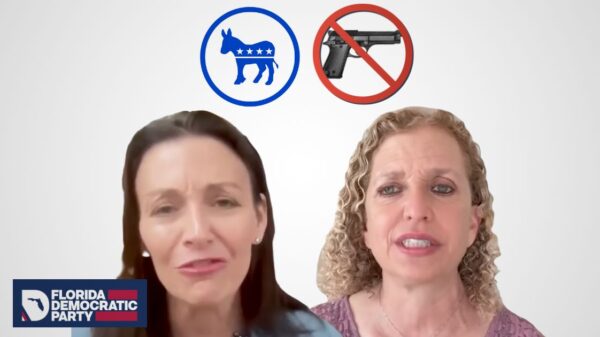With the new year here, food safety and animal feed rules for the new state hemp program under the Florida Department of Agriculture and Consumer Services (FDACS) went into effect. Regulations on hemp extract used in food and dairy products and animal feed have been incorporated into existing FDACS programs, hemp food establishment permits are available, and the Department’s Food Safety Inspectors are ready to conduct inspections.
“We’re proud to roll out these final rules for CBD in food and dairy products, open applications for hemp food establishment permits, and ensure our inspectors are ready to enforce the rules and uphold public safety,” said Florida Agriculture Commissioner Nikki Fried. “These actions bring us one step closer to getting the state hemp program up and running to provide a new alternative crop for farmers, allow Floridians to access safe, quality CBD products, and help our state reach its potential as the nation’s gold standard for hemp.”
As the state regulator for animal feed, food establishments, and the safety of dairy and other food products, FDACS has incorporated the regulation of hemp extract products into the existing regulatory framework to ensure the safety of these new products. Permits are not limited in any part of the process. The state hemp program is horizontally integrated — created with intention to allow any interested parties to participate in any aspects of the process.
“The Florida Hemp Council is very pleased to see the hard work of Commissioner Fried’s team,” said Jeff Greene, director of new business with the Florida Hemp Council. “Without their dedication and hard work, Florida would still be waiting and with the final steps only weeks away we are confident the industry will pick up the ball and run with it.”
Food Safety Rules:
Hemp Food Safety
To protect the state’s food supply, FDACS’ Division of Food Safety oversees the permitting and inspection of food establishments, inspection and evaluation of food and dairy products, and specialized laboratory testing on a variety of products sold and/or produced in Florida. Effective January 1, 2020, hemp extract (CBD intended for ingestion) has been incorporated into existing Division of Food Safety programs.
Hemp Food Establishment Permit
FDACS’ Division of Food Safety issues food permits for the manufacturing, processing, packing, holding, preparing or selling food. Effective January 1, 2020, hemp food establishment permits are available for processing, manufacturing, distributing, and retailing facilities dealing with products consisting of or containing hemp extract and CBD.
Hemp Food Establishment Inspections
To minimize the risk of foodborne illness, FDACS’ Division of Food Safety conducts routine inspections of food establishments including supermarkets, grocery stores, convenience stores, food processing plants, food warehouses, and more. Effective January 1, 2020, FDACS Food Safety Inspectors are ready to conduct food establishment inspections, enforce rules and pull samples for testing for the hemp program.
Animal Feed Rules
FDACS’ Division of Agricultural Environmental Services regulates the state’s commercial feed supply. Commercial feed distributors must be licensed annually submit a copy of the label for each brand of feed to be distributed. Samples of distributed feed must be periodically tested by a certified laboratory to determine compliance with state standards.
Effective January 1, 2020, hemp extract in animal feed has been incorporated into existing Division of Agricultural Environmental Services programs. Permitting, testing, and enforcement for processing, manufacturing, distributing and retailing hemp extract in animal feed is available January 2, 2020.
Final Stages of Hemp Rules
The seed and cultivation rules are being finalized before being filed for adoption — both are expected to be filed for adoption in early 2020. Once these rules have been adopted, submitted to and approved by the U.S. Department of Agriculture (USDA), all aspects of the state hemp program’s regulations will be complete.
The cultivation rule is slightly delayed due to a need to align the Florida Cultivation Rule with the USDA’s final interim rules which were released on October 31, 2019. FDACS still expects cultivation to happen in the first quarter of 2020.


















